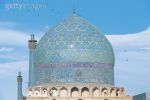I HEAR YOU STEPHEN HAWKING, AND…
 How serendipitous! The BBC news agency published an article on Sept. 2nd relating that Prof. Stephen Hawking, in his latest book The Grand Design, has concluded that God was not necessary to create the universe. Among Hawking’s statements: “It is not necessary to invoke God to light the blue touch-paper and set the universe going”…”The Big Bang was an inevitable consequence of the laws of physics”…and finally, and for me, most importantly, “Spontaneous creation is the reason there is something rather than nothing, why the universe exists, why we exist.”
How serendipitous! The BBC news agency published an article on Sept. 2nd relating that Prof. Stephen Hawking, in his latest book The Grand Design, has concluded that God was not necessary to create the universe. Among Hawking’s statements: “It is not necessary to invoke God to light the blue touch-paper and set the universe going”…”The Big Bang was an inevitable consequence of the laws of physics”…and finally, and for me, most importantly, “Spontaneous creation is the reason there is something rather than nothing, why the universe exists, why we exist.”
In my August 31st post entitled “Awe…some”, I was offering a different way to think about God, using new language to include God in the discussion with a wide swath of people with variant viewpoints. It was not the anthropomorphic construct of a Father or Lord with flowing, shimmering robes and a long white beard. Rather it was “God as the ultimate mystery of things, as the serendipitous creativity manifest throughout the universe…through which new forms and configurations of reality and life have come into being.” (Thank you Gordon Kaufman).
Spontaneous creation says Hawking, Serendipitous creativity says Kaufman. Scientist, Theologian. To my way of thinking, the more that one wants to separate these two fields of inquiry, the closer they appear to fuse. Science and Religion are compatible. They need not be at odds with one another. Whether we are referring to either science or religion, we must be willing to expand our vocabulary, to open our minds to ways of seeing the world, the universe, in ways that to previous generations seemed unimaginable. This takes both a willing faith to jump into the unknown as well as all of our faculties of reason to make sense of our new discoveries.
 The prevalent worldview is that there is only “this”-the space-time world of matter and energy and whatever other natural forces lie behind or beyond it. This modern, nonreligious construct has no foundational place for tradition notions of God. It thus makes the reality of God problematic. For some, it leads to rejecting the reality of God, or at least to serious doubts about God, and thus to atheism or agnosticism.
The prevalent worldview is that there is only “this”-the space-time world of matter and energy and whatever other natural forces lie behind or beyond it. This modern, nonreligious construct has no foundational place for tradition notions of God. It thus makes the reality of God problematic. For some, it leads to rejecting the reality of God, or at least to serious doubts about God, and thus to atheism or agnosticism.
And for those who continue to believe in God, it changes how God is thought of. Many Christians basically accept the modern worldview’s image of reality and then add God onto it. God is the one who created the space-time world of matter and energy as a self-contained system, set it in motion, and perhaps sometimes intervenes in it. God becomes a supernatural being “out there” who created a universe from which God is normally absent. This is a serious distortion of the meaning of the word “God”.
For me, God always points to something greater, a “More” and an “And” . Why can’t God be Creator, Spontaneous Creation, and Serendipitous Creativity? We can live out of our imaginations. The vision of reality emerging in postmodern physics does not settle our understandings once and for all. Religion and postmodern science alike both point to a stupendous “More.”
 People throughout history and across cultures have had experiences that seem overwhelmingly to be experiences of the sacred. There are also the quieter forms of religious experiences that happen in the dailiness of our lives. We witness natural disasters and unmitigated tragedies, and we then we see nature growing and returning to burned forest or flood damaged lands. We hear stories of hope and compassion, beacons of light that rise up when the odds would bet otherwise. While these experiences can’t be quantified, they can be qualified. Existence refuses to quit creating. This experiential base of religion is quite strong; it is ultimately what I find to be its most persuasive ground.
People throughout history and across cultures have had experiences that seem overwhelmingly to be experiences of the sacred. There are also the quieter forms of religious experiences that happen in the dailiness of our lives. We witness natural disasters and unmitigated tragedies, and we then we see nature growing and returning to burned forest or flood damaged lands. We hear stories of hope and compassion, beacons of light that rise up when the odds would bet otherwise. While these experiences can’t be quantified, they can be qualified. Existence refuses to quit creating. This experiential base of religion is quite strong; it is ultimately what I find to be its most persuasive ground.
In closing, some words from Marcus Borg: “Finally, no story can be told about the truth of God. It can’t be argued or televised. And witnesses can’t prove it exists. Yet the truth of God brings peace instantly. There is only one unchanging truth about anyone and everyone. None are left outside of the warm assurance and gentle rest it offers, because God’s truth is Love.”

















